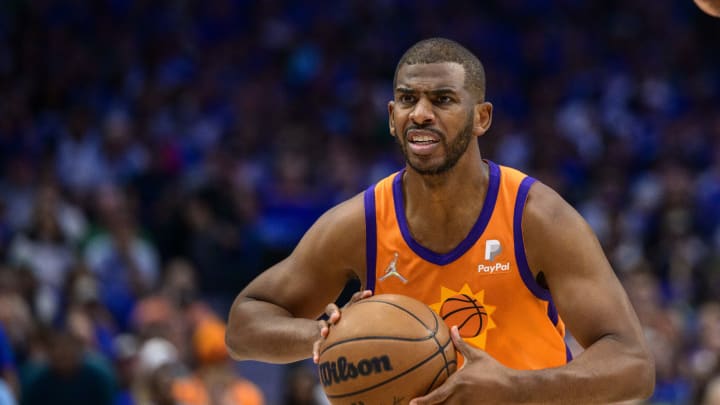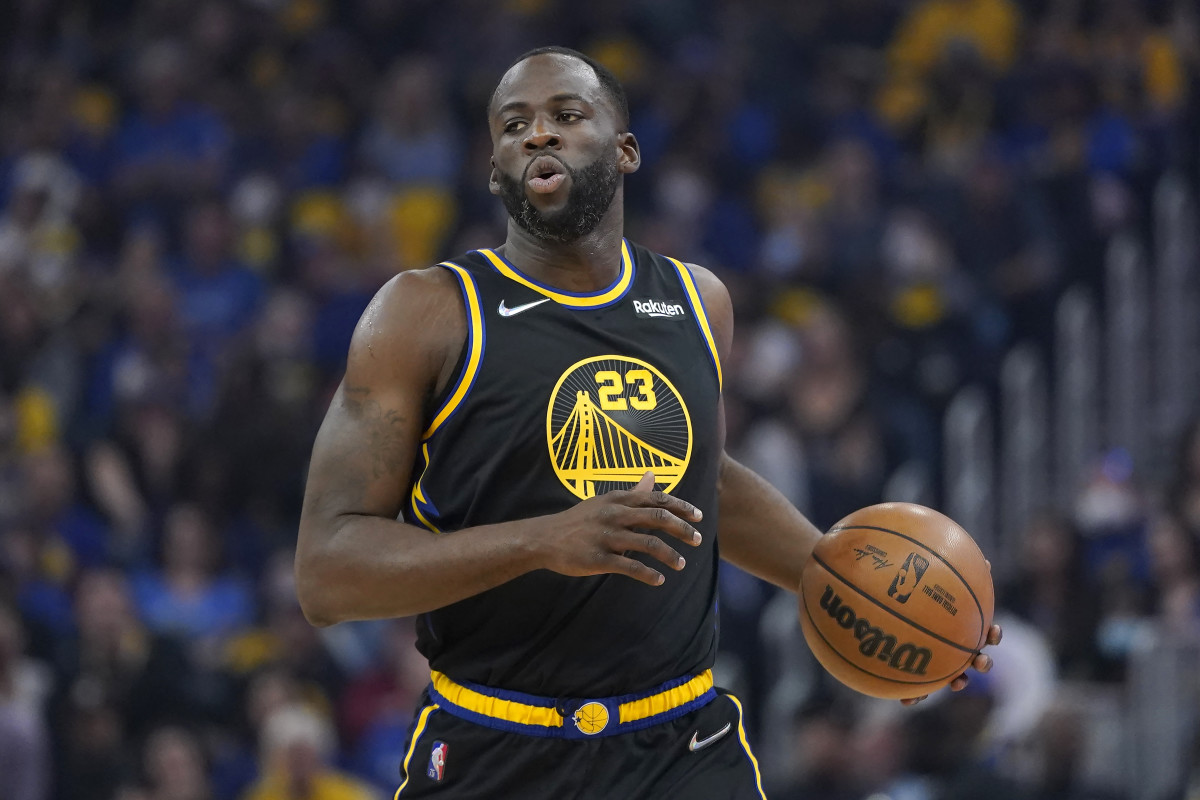Recent NBA Fan-Player Incidents Highlight Disconnect Between League and Its Players

For decades, the NBA has thrived by packing fans and superstars into tight spaces, creating the best game atmosphere of any pro sports league. It’s good business to have fans within a stone’s throw of superstars—you know, as long as they don’t actually throw stones.
No one is throwing stones just yet. But over the past couple of weeks, four future Hall of Famers have publicly complained about fan behavior. Kyrie Irving (in Boston) and Draymond Green (in Memphis) each gave fans the double-bird. Joel Embiid fired back at fans in Toronto. Then, this past weekend, Chris Paul said Dallas fans harassed and made physical contact with his family. Paul was understandably furious.
This is all enough to make you wonder whether the league is headed for a Malice in the Palace redux. A combination of unusual factors led to the 2004 Palace of Auburn Hills brawl: the league’s most combustible player, Indiana star Metta Sandiford-Artest (then Ron Artest); one of its most heated rivalries at the time, Pistons-Pacers; a fan throwing a drink with Greg Maddux–like precision at Artest. But the climate today is worrisome in other ways.

Too much public discourse is fueled by anger; fans verbally and even physically accosting players is just one example of it. Many of today’s stars are disgruntled (because they are hyperaware of slights, especially on social media) and empowered (because they are hyperaware their organizations need them, and fans are more likely to side with players in any dispute than they were 20 years ago). Many are also rightly frustrated with society’s continually slow pace of racial progress and are in no mood to take any kind of mistreatment from anyone. Twenty or even 10 years ago, Green and Irving would have been expected to apologize. Instead, both made it clear they had no regrets.
Embiid said he lost respect for Toronto fans when they chanted “F--- Embiid” after he did a postshot airplane celebration and subsequently took a hard elbow to the face from Pascal Siakam that resulted in an orbital fracture and concussion.
The play where Joel Embiid got injured https://t.co/GYWDUxupoU
— NBACentral (@TheDunkCentral) April 30, 2022
Upon his return in the second round (the Sixers eliminated the Raptors), Embiid was asked about the incident and said it wasn’t just a Toronto problem: “It’s been going on in a few arenas these days, where the fans just feel like it’s O.K. to say, ‘F somebody.’ … [There are] a bunch of kids in the arena. I don’t think that should be O.K. If you respond to it, it’s almost like a Draymond situation, and the league fines you. … I’m just speaking for really everybody in the NBA. Like I said, if you give it, you also gotta be able to take it.”
This all seems reasonable, and no one should just scream profanities in an arena full of kids, but Embiid also highlighted the disconnect between some stars and the league office. The NBA thinks it has mechanisms in place to keep game atmospheres hot instead of explosive. But players need to believe those mechanisms work and those mechanisms are enough. Otherwise, the league risks having players do more than flipping the bird.
And yes, if you respond to fans by giving them the finger, the league will fine you. But you can also do what LeBron James did in Indianapolis earlier this season: Tell security and have the fans kicked out. The NBA has emphasized that option to players in recent years.
Embiid’s argument, “If you give it, you also gotta be able to take it,” implies that when fans heckle, players should respond in kind. But the standard for a player making millions of dollars a year is, and always has been, higher than the fans who pay to get in to watch. Part of a professional athlete’s job is knowing when not to give it back. If fan heckling gets out of hand, the player has to tell security. If NBA players are no longer satisfied with that kind of resolution, commissioner Adam Silver needs to recognize it and be proactive in addressing it.

Fan-player conflicts are not a new problem, and the NBA is actually much better at dealing with it than it used to be. In 1995, Rockets guard Vernon Maxwell walked into the stands and smacked a heckler. His punishment: a 10-game suspension and $20,000 fine. Nine years later, Artest charged into the stands, and then commissioner David Stern suspended him for the rest of the season.
These days, many teams ban fans for long periods of time and use facial-recognition technology to enforce those bans. More important: Every team travels with at least one security guard, and it is common for superstars to bring their own as well. Paul’s personal bodyguard was sitting behind the Suns’ bench in Dallas. He couldn’t stop the fan aggressions, but he was in a position to deal with it. The Mavericks kicked the fan out of the arena.
Paul still had a right to be upset. Most people would be. But his tweet in response to the Dallas incident—“Wanna fine players for saying stuff to the fans but the fans can put they hands on our families”—shows the delicate balance the NBA is facing right now. Silver can reasonably point out his league does not allow fans to touch players’ families; the fan in Dallas was, after all, ejected. But that is small consolation to a star point guard who says his mom and wife got pushed by fans on Mother’s Day. (The Mavericks said “unruly fans attempted to give unwanted hugs” and were ejected.)
When Embiid says he is “speaking for really everybody in the NBA,” and three other stars back him up implicitly with their actions, that should concern the league. The NBA has seen how ugly these incidents can get. Together, the league and its players need to make sure they don’t get that ugly again.
More NBA Coverage:
